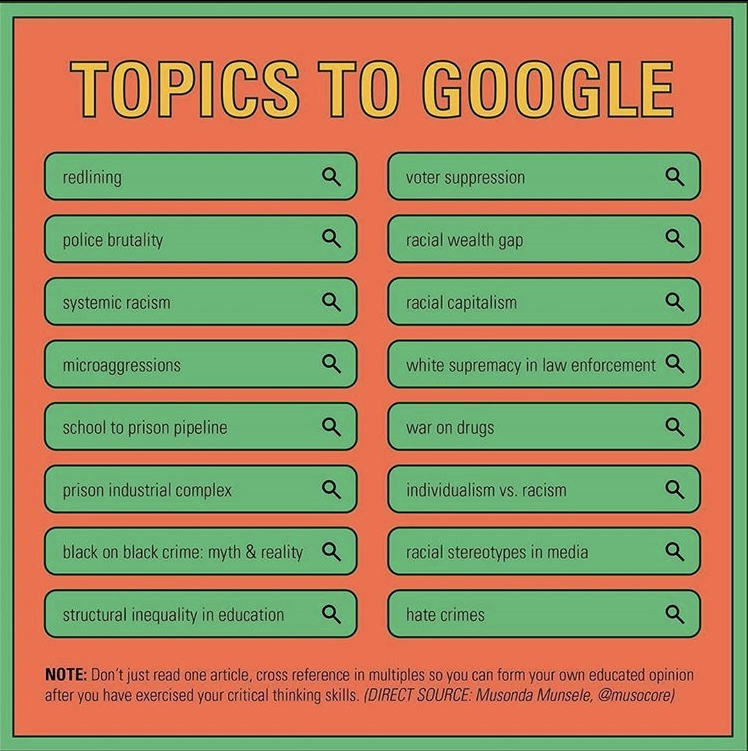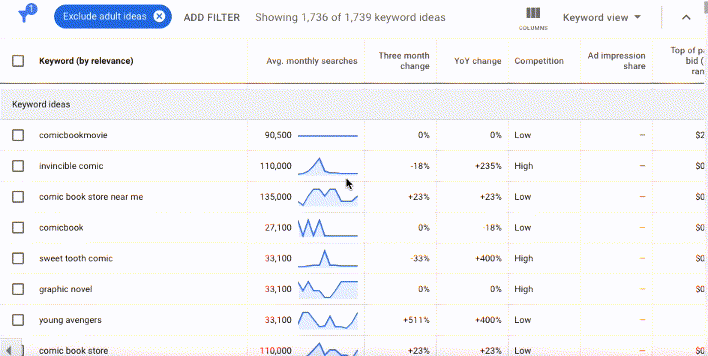This essay originally was published on June 23, 2022, with the email subject line "CT No. 128: I'd love to clear a few things up."
Hey. Psst. I only have a few minutes today because I'm working on some really cool stuff. But there's something I want to tell you.
Search has been in U.S. news recently, mostly because Google has a monopoly and there's some good bipartisan legislation in the U.S. challenging its dominance. The John Oliver show picked up on it, and then a few people wrote articles and newsletters and probably Tweets following Mr. Oliver's lead.
The Oliver segment was very funny. I learned new things about search, specifically that certain politicians' children work for tech companies and that has been a hindrance to getting actual legislation passed.
But, like, when your widely misunderstood industry is in the spotlight, it can be frustrating to see media professionals—whose entire job is to report and write facts—writing and reporting their ideas about Google Search without understanding where the money is actually going and how the industry works. So.
A few things I'd like to bring up since I have a decade of experience in this space:
- First off, don't ever use quick answers in Google Search results if you want actual facts. They are always wrong. Egregiously so. Please do all digital information professionals a favor and assume the first answer you see in the Google interface is wrong. Tell your friends and your family that they shouldn't trust Google answers. Quick answers are not good, information-wise, largely because Google makes no actual money from quick answers.
I've stopped giving Google feedback on Quick Answers every time they're wrong or seem wrong because I refuse to do Google's editorial work under the guise of "crowdsourcing." But that doesn't mean they're not wrong, often.
In my opinion, Quick answers and People Also Ask exist to make audiences feel like the search product is magic and nothing else. Audiences don't realize that People Also Ask and Autocomplete are generated from a completely different algorithm that looks more like Autocorrect than the algorithm that generates organic search results.
Quick answers and People Also Ask are generated algorithmically and not reviewed by humans, and it shocks me that people whose job it is sort high from low quality information don't acknowledge this in their reporting.
The Oliver segment kinda hinted at how the quick answers algorithms work but didn't explain, which made for a great joke, but, like. I dunno. It's such low-hanging fruit to pick on quick answers. - Yes, Google self-preferences in organic search, but that is not why it is a monopoly.
Google/Alphabet is a monopoly because it owns the advertising network that powers the web: search ads (57% of Alphabet revenue), the supply side network (Google AdSense or DFP), and the demand side network (Google Ads), plus YouTube and all the ads within. Here's a good breakdown by CNBC on Google's ads business.
It owns some of the system powering connected TV ads and is trying to be in cahoots with Netflix on its greed-driven ad offering.
It owns a leading email product, a leading mobile phone operating system, and a leading browser. It owns cloud services and business software.
It defined the measurement system for the contemporary web with Google Analytics and Google Ads and introduced new ways of working to billions of people with self-service advertising and collaborative documentation.
Yes, it's huge, and all that's aside from the fact that 90% of the world uses Google to find information via search.
Think of SEO/organic search and the quality of said results as the content marketing for the rest of that business.
But whether organic search results are considered "good" means very little to Google's overall revenue.
I'd like to see more reporters looking at the actual size of the businesses and diving in to the mucky stuff that ad-reliant media either doesn't understand or doesn't want to admit: it's the ads, my dudes! Google owns all of the ads and the entire supply chain! - The global SEO services industry, which at this point should also be called the website industry, provides a sustainable income and jobs for many people. Sure, there are some garbage businesses in there, but overwhelmingly, people who work in SEO just want to make the web higher quality.
According to IBISWorld, whose data I pay for when I need to, the U.S. SEO services industry is larger than the U.S. newspaper and magazine publishing industries combined. I believe the stats are similar globally.
To clarify: the SEOs services industry comprises companies who provide website growth services outside of Google.
The difference between the global SEO industry and the global magazine industry is that the SEO industry is growing, organic web traffic is growing still.
Traditional magazine and newspaper industries are shrinking. Why?
Magazine and media industries are low-paying and artificially high-stress. They rely on content churn, quick takes, and a steady stream of low-cost talent. Layoffs and low pay are givens.
Quite literally: I work in SEO and web content because I cannot afford to work on the editorial side of media. I love building digital content, and shifting from media to SEO gave me the opportunity to make websites for a living.
The SEO industry offers higher paying jobs and a more sustainable lifestyle. SEO content is slow. I like to say "there are no emergencies in SEO," which keeps teams focused on creating better content for longer periods of time. There's literally no reason in SEO to contact someone on a weekend or after hours because hey! SEO changes often take weeks to garner results.
You can find disgruntled workers on any industry easily on social media. Twitter is where you go when you're disgruntled. One disgruntled SEO worker and one bad company does not mean that the entire multibillion dollar industry is bad or wrong.
Good content SEO companies work in what looks more like digital editorial that it ever has before: connecting topics, proving authority with quality writing, and generally building good websites.
Meanwhile, media companies continue to completely whiff when it comes to building good websites, keeping employees happy, and building audience trust. What's the new Reuters report say, 26% of U.S. audiences trust news? Yikes... - Keyword stuffing has not been a viable SEO tactic in about a decade. Why don't media writers know this? I dunno, probably because they were busy dismissing "SEO content" as inferior or as a traffic/eyeball generation machine.
- I don't know whether search results have gotten better or worse, but if I were going to write about it, I would include some actual data.
Everything in SEO can be quantified. If you say "it's impossible to quantify the change in search results," you're not talking to the right people or looking at the right data. Without quantitative or good qualitative data, you're holding up the notion that Google is magic. Searching Twitter and Reddit for posts that support your narrative does not count as digital ethnography.
We are literally using numbers machines to distribute content. There are numbers upon numbers describing how the system works and how well it works. Failing to provide some sort of quantitative data is borderline negligent in tech reporting. - In my opinion, there's never been a better time to build and optimize web content for long-term growth. SEO and website health requires a significant investment — you're reading The Content Technologist, so you know websites are not free to create or maintain — but organic search traffic for well-optimized websites is still growing and still profitable over time.
Websites are still big, and growing bigger. It's the 20th century media business model that got small.
Ok, I promised myself I wouldn't spend more than two hours on this, I'm at the two-hour mark and feel I've written what I needed to say. Thanks for listening.
If you only remember one thing: quick answers are totally wrong and you shouldn't use them. Go to websites with reliable sources to find information. Look at the blue links below the ads, literally and metaphorically.
Hand-picked related content







